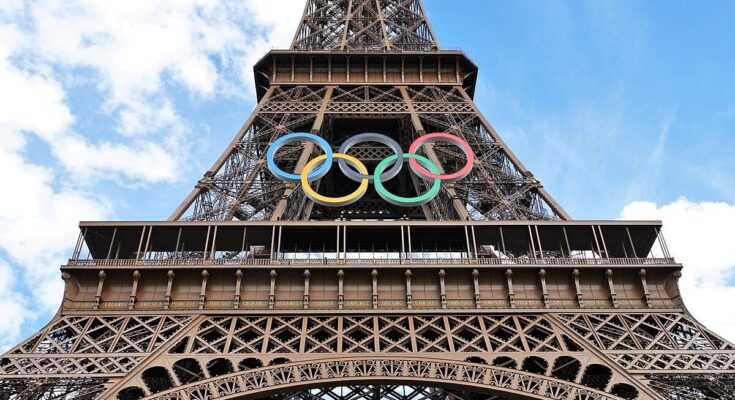With the 2024 Paris Olympics in full swing, the economic impact is probably far from the minds of most sports fans, but for the French and Parisian authorities hosting the games, the anticipated costs and rewards will be as important as ever.
The cost of hosting the Olympics has grown significantly since at least the 1970s. Aspiring host cities spend vast sums of money bidding for the opportunity to stage the Games. They must allocate even more funds to build the necessary infrastructure if successful.
On the other hand, the International Olympic Committee (IOC) argues that host cities can look forward to receiving “powerful economic benefits” from staging the Olympics. These benefits include increased tourism, the creation of jobs, and investment in infrastructure.
The multifaceted nature of hosting the Olympics in terms of economic costs and benefits has led to an interesting debate among economists: is hosting the Olympics worthwhile from a financial point of view? Far from a merely academic question, it poses real-world consequences for the continued success of the Olympic Games and the capacity for a diverse array of nations to host them.
Hosting the Olympics imposes heavy costs
From the outset, it is worth acknowledging the obvious. Hosting the Olympics isn’t cheap. To stage the most high-profile sporting event on Earth, hosts have to spend vast sums on stadiums; supporting infrastructure such as roads, airports, and transport; accommodation; and security.
Even before a host nation is picked for the Olympics, the costs associated with the bidding process are high. According to the Council on Foreign Relations, cities invest millions in bidding for the Olympics, with costs for planning, consultants, events, and travel typically ranging from $50 million to $100 million. Tokyo spent $150 million on its failed 2016 bid and about half that for its successful 2020 bid, while Toronto opted out of a 2024 bid due to the $60 million expense.
Naturally, the costs vary immensely between host cities and reflect the economic power of individual governments and the unique circumstances of each host. According to statistics from Investopedia, Beijing expended $42 billion to host the 2008 Olympics, while Athens, Greece, allocated $15 billion for the 2004 Games. In comparison, Sydney disbursed $4.6 billion to stage the Olympics in 2000.
Another factor impacting costs is whether the host already has suitable stadiums and infrastructure to stage the Games. During the 1984 Summer Olympics, for example, Los Angeles kept costs relatively low because it did not need to invest as heavily in constructing new stadiums and supporting facilities.
One way Olympic hosts can ensure that their investment pays off over the long term is by repurposing infrastructure and facilities built for the Games after their conclusion. For instance, the Athletes’ Village which competitors briefly called home during the 2012 London Olympics was converted into permanent accommodation and now houses more than 6,000 people.
Tourism
Economists have noted that the impact of the Olympics on tourism is mixed. Many hosts are eager to capitalize on the thousands of sports fans who travel to watch the Games, but the increased security, crowding, and higher prices often deter many potential visitors.
Barcelona, which hosted the Olympics in 1992, is a notable success story, rising from the eleventh to the sixth most popular destination in Europe after the Summer Games. Similarly, Sydney and Vancouver experienced slight increases in tourism following their hosting of the Olympics.
However, research by Baade and Matheson indicates that Beijing, London, and Salt Lake City all saw decreases in tourism during the years they hosted the Games.
Thus far, Paris seems to be following the latter trend. According to several mainstream media reports, tourists are avoiding Paris during the Olympic Games.
“The second half of July has been absolutely catastrophic for cafes and bars in Paris,” Remi Calmon, director of SNEG and Co, a trade union representing food and beverage firms in Paris, told German broadcaster DW.
“The streets are deserted,” Calmon continued, “[and] the Parisians have fled. We had metal barriers fencing in cafe terraces in restricted zones for the opening ceremony, blocking the view. Some roads and metro stations are closed, resulting in few to no clients.”
Figures and financial estimates back up the anecdotal evidence that the Paris Olympics are incurring more costs than benefits. The aviation industry, for example, reports that the Olympics have reduced the usual summer demand for trips to Paris. Delta anticipates a $100 million loss from June to August, while Air France-KLM expects a revenue drop of €150 million ($162.3 million) to €170 million ($184 million) in the third quarter due to the Games.
Job creation and employment
One major potential economic benefit of hosting the Olympics is the creation of new jobs and higher employment rates. An estimated 150,000 jobs have been created to organize the 2024 Paris Olympics.
This is another area in which the degree of benefit is highly variable between hosts. As Poole College economist Steven Allen explains, the relative level of benefit “depends on whether the host city is at or below full employment. Building Olympic facilities may simply divert construction workers from building houses, businesses, and infrastructure.”
Is hosting the Olympics worth it?
Overall, does hosting the Olympics provide more of an economic boost or burden? The answer is that it depends. A myriad of factors impact whether a city will ultimately profit or lose out from the Games financially. These range from infrastructure costs to tourism numbers.
From a purely financial or economic point of view, hosting the Olympics might be deemed an excessively risky proposition. Most economists are hardly brimming with confidence that the profits associated with staging the Games outweigh the costs.
However, Olympic hosts can anticipate other benefits, including a boost to national prestige and increased soft power. This enhanced reputation can be leveraged in international relations to gain better influence in diplomacy and foreign affairs.



